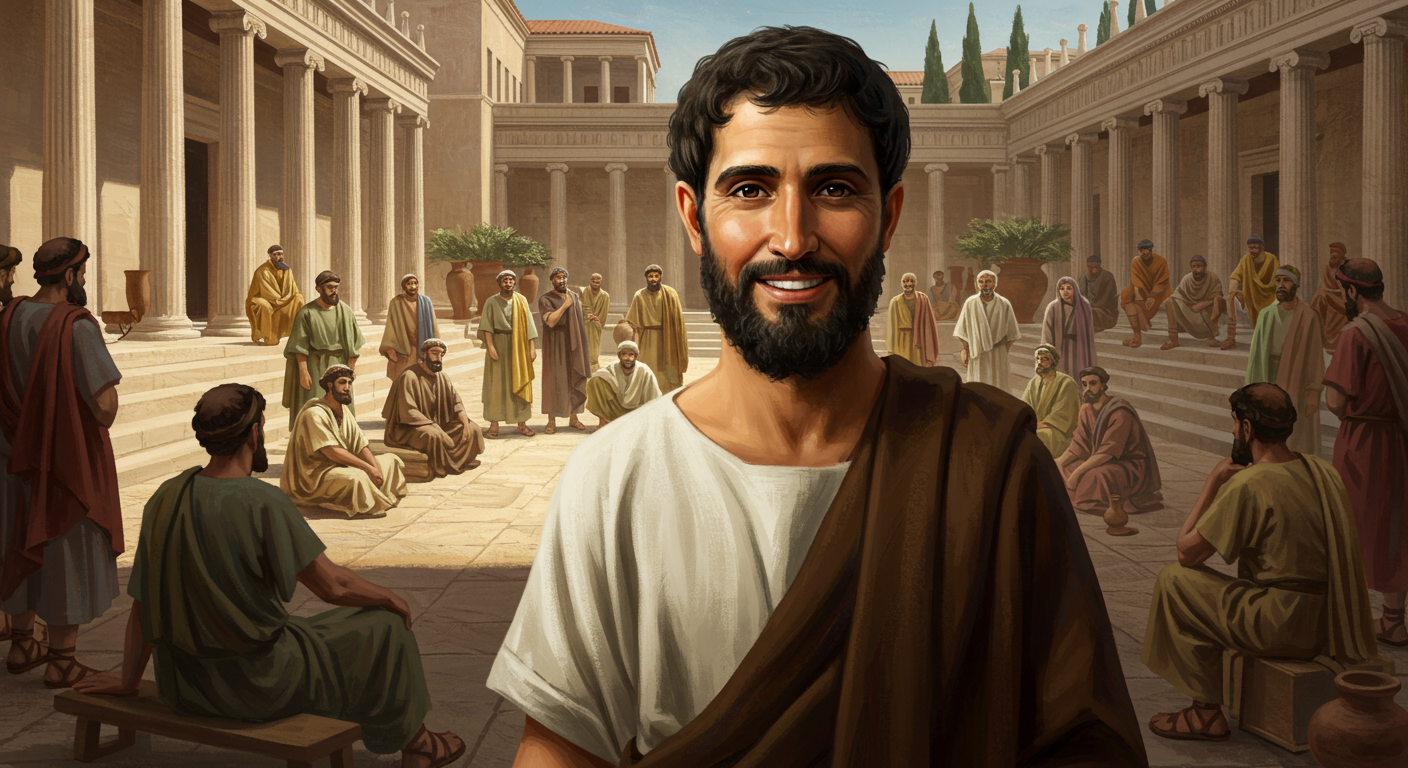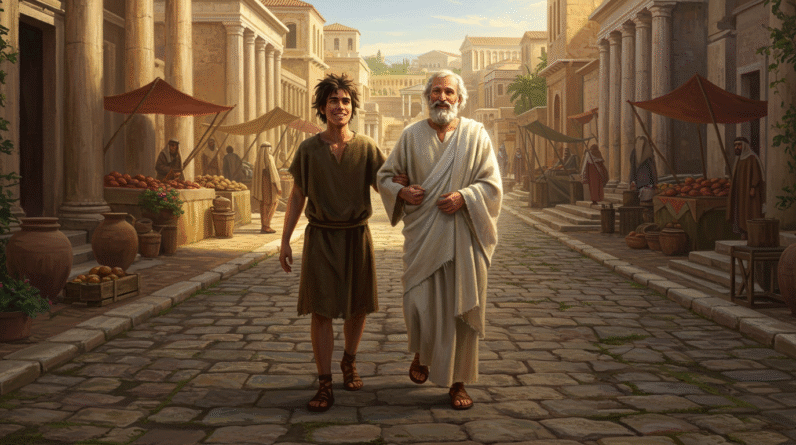Explore Gaius’s role in the New Testament—a narrative of integrity, hospitality, and faith. Reflect on timeless lessons that challenge modern believers to live authentically.

Lessons from Gaius in the New Testament
Introduction
When venturing into the New Testament, you encounter various individuals who, although briefly mentioned, play significant roles within their communities and the greater biblical narrative. Gaius is one such character. A man of integrity and generosity, Gaius is highlighted in the New Testament as someone who embodied Christian hospitality and steadfastness. Through his life, as captured in 3 John 1:1-8, Gaius offers timeless lessons on faith, community, and service that resonate across centuries. His life challenges modern believers to reflect on their journeys in light of his exemplary deeds and commitment to the early church.
Gaius’s Story in the Bible
Gaius appears in the third epistle of John, an affectionate letter from the beloved apostle that bears witness to their close relationship and Gaius’s admirable character. The letter begins with John’s heartfelt greeting, epitomizing the affectionate bond he shared with Gaius, whom he regarded as his “dear friend” due to Gaius’s fidelity to living out the truth of Christianity (3 John 1:1). Gaius’s story unfolds amid the early Christian church’s challenges, where gratitude, praise, and encouragement are delivered to him for his hospitality, particularly towards visiting missionaries and teachers. This hospitality is not merely a social nicety but an essential service that supports the spread of the faith.
In the first few verses of the epistle, John commends Gaius for walking in truth, not just in personal faith but in active love for others. Gaius accepted and helped itinerant preachers and teachers of the gospel, even though they were strangers to him (3 John 1:5-6). John’s letter praises Gaius’s actions, which are consistent with the teaching that welcoming and supporting the brethren and strangers is equivalent to being fellow workers for the truth (3 John 1:8).
Moreover, Gaius’s story stands out in the New Testament narrative because, while brief, it marks a contrast with other leaders like Diotrephes, who, contrary to Gaius, was known for rejecting apostolic authority and for his inhospitable nature (3 John 1:9-10). Thus, Gaius becomes a commendable model over figures like Diotrephes, illustrating the impact of genuine love and service within the early Christian communities.
Lessons from Gaius’s Life
From the brief but powerful glimpse into Gaius’s life, three paramount lessons emerge, demonstrating his legacy in the Christian faith and offering guidance for believers today.
The Virtue of Hospitality
Gaius teaches the undebatable importance of hospitality within the Christian community. His willingness to open his home and resources to strangers, especially those spreading the gospel, showcases a pivotal action of faith and love. In an era when travel was arduous and comforting places for weary travelers were few, Gaius’s hospitality was not merely a kind gesture but a critical support system that enabled the early Christian mission to thrive. Today, this invites reflection on how you can open your own spaces—whether physical homes or the jurisdiction of your time and resources—to support those at the forefront of faith work.
Living in Truth
John’s repeated emphasis on Gaius walking ‘in the truth’ reflects a lifestyle that harmonizes faith and actions. For the apostle, Gaius’s lifestyle demonstrated a deep integration of belief and behavior, showing a tangible enactment of Christian teachings. The call here is clear: let your actions reflect the truths you uphold. This is a lesson in authenticity and living with integrity in all areas of life, a call to not merely profess beliefs but to embody them in daily choices and interactions.
Partnership in God’s Work
Gaius’s actions shed light on how critical support roles are in the larger mission of spreading the faith. By aiding those preaching the gospel, Gaius actively participated in the ministry’s success. He teaches that not everyone needs to be at the forefront to have a significant impact; by supporting those who are, you become a vital part of the mission. This encourages a mindset of collaboration and partnership, valuing every role within the church and contributing to the kingdom of God in various ways.
Connection to Today’s World
Gaius’s narrative provides lessons deeply relevant to modern contexts, echoing especially into communities and individuals striving for a more inclusive and supportive world.
Cultivating Generosity and Community
In today’s world, where individualism and self-reliance often take precedence, Gaius’s story is a compelling call to cultivate community and generosity. His willingness to support and nurture those in his community points to the profound impact one can have by actively practicing kindness and opening doors to others. Whether it is through sharing resources, offering time, or simply providing a listening ear, embodying hospitality can rejuvenate community ties and reflect the warmth of faith.
The Power of Authentic Living
Gaius’s commitment to living out the truth speaks to today’s challenges of authenticity. In an era dominated by digital personas and curated realities, Gaius’s life is a clarion call to live genuinely and authentically. Millennials, Gen Z, and beyond grapple with pressures to conform to societal standards; Gaius shows that true peace and alignment come from walking in truth, emboldening individuals to live out their values with courage, even if it diverges from mainstream paths.
Embracing Role Diversity in Service
The lesson of supporting God’s work through different roles, as exemplified by Gaius, reinforces the idea that diverse vocations and duties within the church contribute to a successful mission. For contemporary believers, this offers encouragement that regardless of one’s position—be it front-line evangelism, supportive roles like volunteer coordination, or silent prayer warriors—all have intrinsic value. Understanding this can empower communities to respect diverse contributions, fostering a collaborative spirit that can transcend differences and achieve collective goals.

Key Bible Verse
One of the verses that encapsulate Gaius’s journey and profound impact is 3 John 1:4: “I have no greater joy than to hear that my children are walking in the truth.” This verse signifies the joy and fulfillment that John feels about Gaius’s lifestyle, highlighting the value placed on adherence to truth through action. It echoes throughout time, encouraging believers to seek joy not in superficial achievements but in a life lived transparently and authentically within the framework of faith.
Thought-Provoking Question
As you reflect on Gaius’s life, consider: How can you embody the spirit of hospitality and live authentically, serving as a partner in a global community working towards the common good?
Conclusion
In conclusion, Gaius, though understated in the biblical narrative, serves as a timeless exemplar of living out faith with authenticity and generosity. His story encourages modern believers to integrate these virtues into everyday life, inviting introspection and active engagement with the world around them. As you journey through your own paths, may the lessons gleaned from Gaius inspire you to walk in truth, open your heart to others, and work collaboratively for the greater good.







